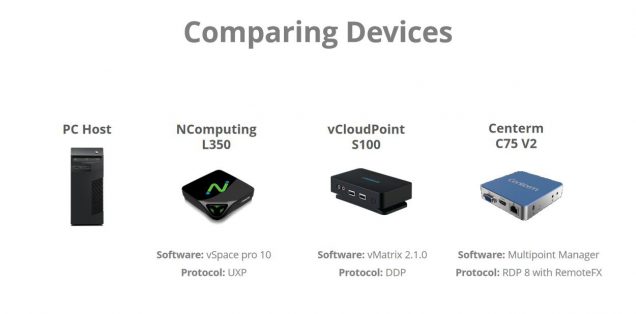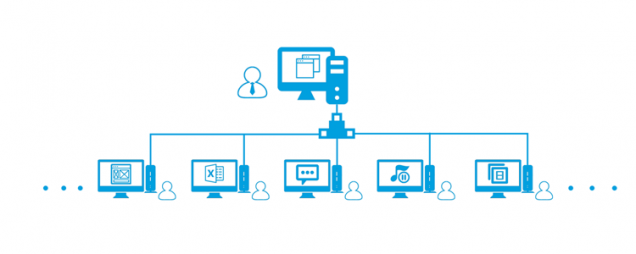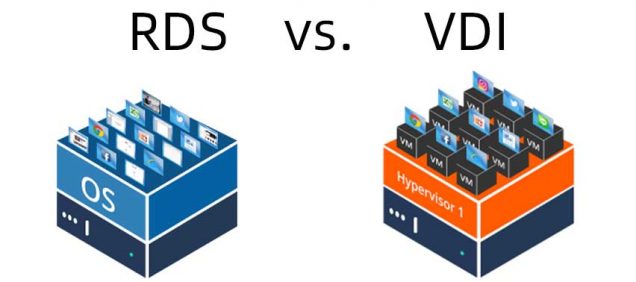-

Performance Comparison of the RDS Zero Clients
Shared computing is becoming an essential topic in the business world. Virtual desktop technology has significant advantages, such as cost reduction, increased productivity, and content management offerings. Organizations are migrating away from the traditional PC desktop experience to multi-user applications. End-user experience, display quality, and resources efficiency are among the main factors when opting for […]
-

Zero client vs. thin client computing: Why zero clients are better
Zero clients and thin clients both offer virtual desktop access, but they aren’t the same when it comes to performance and scalability. A zero client is similar to a thin client in that both provide access to virtual desktops, but they have significant differences when it comes to performance, usability, and security. A zero client […]
-

Get the skinny on zero clients vs. thin clients
Thin clients used to be the thinnest, but now zero clients are giving them a run for their money with almost no storage or configuration requirements. Zero clients are similar to thin clients in their purpose — accessing a desktop in a data center — but zero clients require a lot less configuration. Zero clients […]
-

Network has a great impact on zero client performance
We all know the zero clients are free of CPU, memory, processor and hardware requirements. This means that another strong factor plays a role in transmitting the information from the server to the client. That is the network. And in case of zero clients, this network bandwidth should be really wide and sufficient enough for […]
-

The configuration of a zero client itself does not contribute to the desktop performance
Most customers mistakenly think that a zero client should be, like thin clients, configured high in its internal hardware such as, CPU, flash, network chipset, to grantee a high performance. Unlike x86 thin clients that are typically required for standalone usage and have local system and software. Zero clients offer nothing locally but just enable […]
-

Know the differences between RDS and VDI
Companies aspire for technologies that can be efficient and cost-effective to boost their productivity and meet their present and future requirements. Desktop virtualization is a top trending term, which is capable of delivering high performance, high security and required flexibility to all businesses. Either Remote Desktop Services (RDS) or Virtual Desktop Infrastructure (VDI) can achieve […]